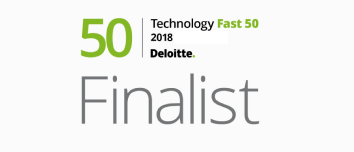Smarter insurance: A new opportunity to drive value in the P2P accommodation space
Digital platforms offering peer-to-peer or shared accommodation are transforming the tourism sector. Popularized by the likes of Airbnb and HomeAway, they offer property owners a valuable opportunity to monetize their underutilized assets whilst delivering fantastic new experiences to holiday-makers that can’t be replicated elsewhere. Yet with this rapid expansion has come certain new challenges: problems with inflexible legacy insurance offerings, for example, can lead to many landlords spending excessively by over-insuring.
Fortunately, innovative new insurance technologies are emerging to offer P2P accommodation platforms a new value-add for their members. Integrating seamlessly into the user journey, they can offer highly customized, tailored policies to suit the specific needs and rental schedules of individual property owners.
Growing pains
It’s hard to believe that the sharing economy is already a decade old. Over that time, companies like Uber, TaskRabbit, Zipcar and Fon have pioneered a new economic model where goods and services are delivered by members of a network, rather than a single entity. It has been particularly successful in the accommodation sector, where it is claimed that over two million people stay at one of Airbnb members’ six million properties every single night, in the 191 countries it serves around the world.
These are the kind of figures that have created a huge buzz in the industry over the past few years. Figures cited by Mastercard estimate the shared accommodation market will grow by around 30% between 2015-20 to reach $131bn in value by next year.
The shared accommodation market will grow by around 30% between 2015-20 to reach $131bn in value by next year.
Meanwhile, World Economic Forum stats cited by the World Bank predict that 17% of the hotel sector annual revenues, amounting to $8bn, will be in short-term rentals by 2025, up from just 7% last year.
It claims the P2P accommodation sector will grow worldwide at six times the rate of traditional bed and breakfasts and hostels, driven by digital platforms. However, despite the impressive stats, the World Bank claims that they may be overestimating the impact of the sector. “Occupancy rates are extremely low, with most providers receiving fewer than 20 bookings per year,” it says.
Insurance headaches
This financial challenge for property owners is compounded by the issue of rental insurance. Increasingly it is required of them by local authorities, as in Barcelona, yet in practice it can be a headache. Why? Because traditional models simply don’t have the motivation or the technical capabilities to offer customized policies for part-time landlords. That means in practice that many of them might over-insure: they buy a generalized 12-month policy from their insurer and then another policy from their P2P platform provider for the duration the property is leased out.
There’s no incentive for the insurer to hit pause on their policy; instead they’re being paid for coverage which will only effectively be needed for a fraction of the original stated period.
In another scenario, a landlord may even end up being under-insured if their original policy doesn’t cover rental use, and they subsequently elect not to take out further insurance via the platform provider. In either case, paying for too much insurance or not enough, the property owner is worse off.
The road to smarter insurance
It doesn’t need to be this way. Insurtech innovators are leveraging machine learning technology to offer highly customized policies for specific dates of stay. They take large volumes of anonymized data collected from P2P platform partners and/or other third-party sources including details on the stay, total cost of the trip, the renter’s travel history and more. By applying intelligent algorithms to this data, they’re able to create simple, accurately priced products right for that particular rental period.
They can even build in optional extras to the overall price, such as discounts for a parked car the landlord may not be driving while the house is occupied. And it goes without saying that these new bespoke products will work in harmony with any existing home insurance policy. All of this can be offered by the platform provider seamlessly at the time of listing via API integration and then continuously updated over time. The same intelligent back-end also works to offer the landlord speedy claims assessment and instant payments for approved claims in the event of damage to the property.
It’s all about offering a more personalized insurance experience to the growing number of part-time landlords driving the shared accommodation revolution, whilst ensuring no one overpays or under-insures. That’s the kind of value that can drive differentiation and growth for P2P platform providers keen to offer the best possible customer-centric service.












